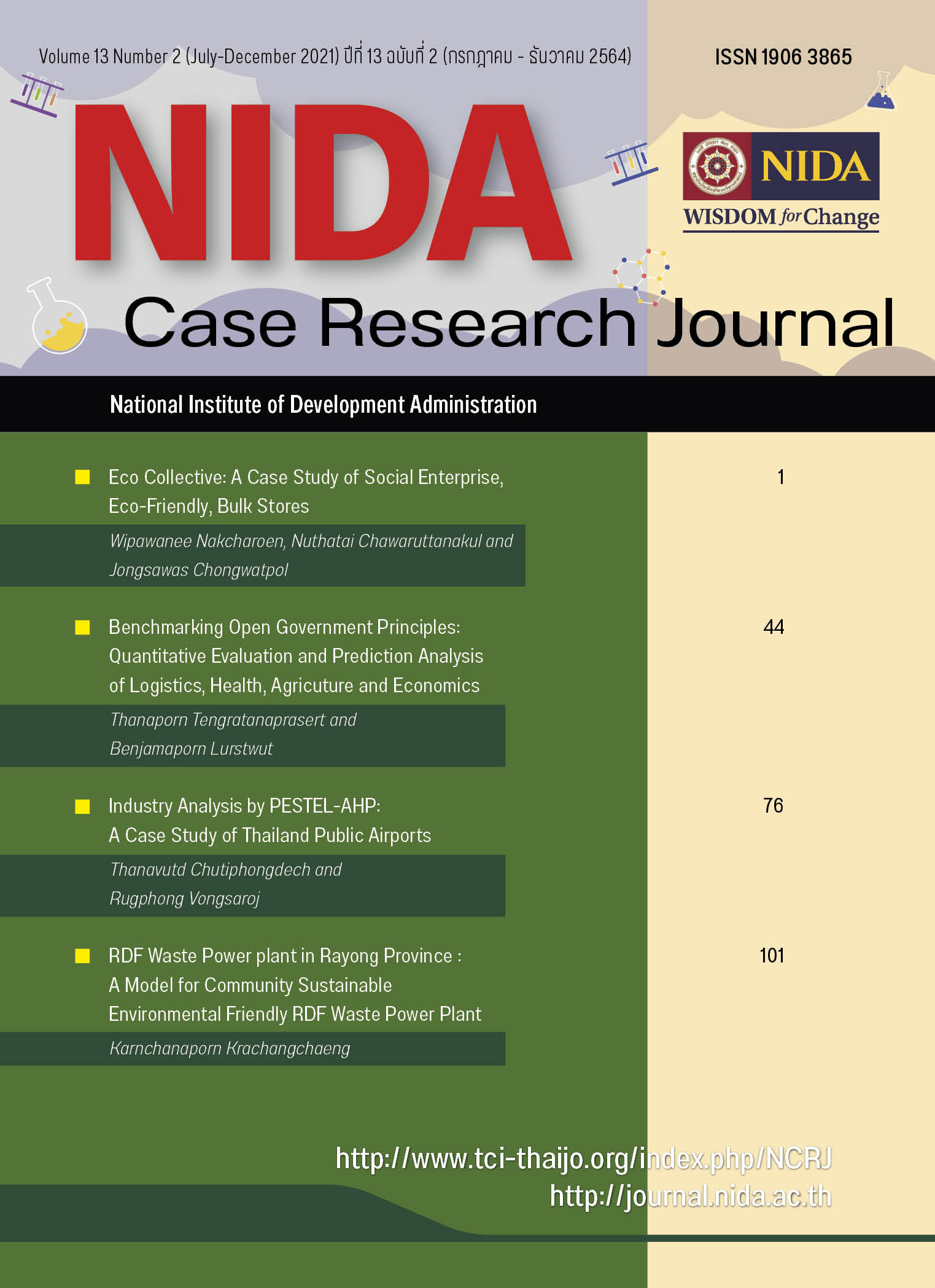Eco Collective: A Case Study of Social Enterprise, Eco-Friendly, Bulk Stores
Keywords:
Eco-Friendly, Social Enterprise, Location AnalysisAbstract
This case is designed to illustrate the concept of social enterprise, eco-friendly, bulk store and to understand how to make effective decisions based on location analysis. The case starts when Jane, the head of the business strategy department, was assigned by Kan, the CEO of Furniture Collective, to develop a new business expansion plan by collaborating with small enterprises located in many small communities throughout the country. The case is divided into three parts. Case A provides an overview of Eco Collective bulk store, which offers a variety of organic and environmentally friendly products from local community partners with the concept of “Bring your own containers” for customers to refill. Case B focused on the concept of market segmentation, competitor analysis, and market positioning. Case C implicitly outlines factors that should be considered when narrowing down the location choices for Eco Collective’s first branch. As the head of the business strategy department, Jane needed to convince Kan to agree with her ideas about this social enterprise bulk store, identify the characteristics of customers, who were more eco-conscious, and identify which segment strategy is suited for an Eco Collective store. On the other hand, Kan needs to make a decision whether the Eco Collective initiative should be approved, and if so, which location should be selected for its first branch.
References
Capgemini Research Institute (2020). World Wealth Report (2020). Retrieved July 02, 2021 from https://worldwealthreport.com/wp-content/uploads/sites/7/2020/07/World-Wealth-Report-WWR-2020_Final_web.pdf
Chongwatpol, J. (2017) Business Intelligence and Analytics for Managers. Bangkok, Thailand: Chulalongkorn University Printing House
Dart, R. (2004). The legitimacy of social enterprise. Nonprofit Management and Leadership, 14(4), 411-424.
Kotler, P., Keller, K. L., Manceau, D., & Dubois, B. (2016). Marketing Management, 15e Edition. city?: Pearson Education.)
Sharda, R., Delen, D., & Turban, E. (2017). Business Intelligence, Analytics, and Data Science: A Managerial Perspective on Analytics, 4th Edition, city?: Pearson.
Sharda, R., Delen, D., & Turban, E. (2019). Analytics, Data Science, and Artificial Intelligence: Systems for Decision Support, 11th edition. city?: Pearson.
Downloads
Published
How to Cite
Issue
Section
License
Copyright (c) 2023 NIDA Case Research Journal

This work is licensed under a Creative Commons Attribution-NonCommercial-NoDerivatives 4.0 International License.





